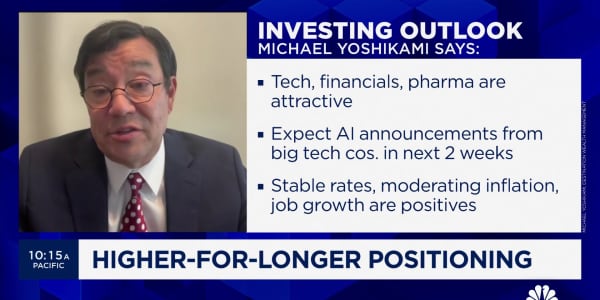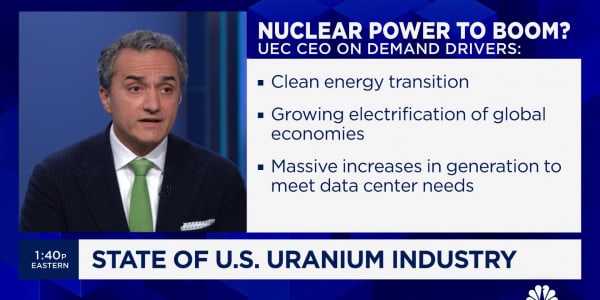Many investors believe that declining oil prices are a good thing—for now—though some see $30 a barrel as the break point when the trend turns negative.
Earnings season has provided a good glimpse at how energy is impacting corporate America.
Outside the sector, this is turning into a pretty good quarter. Include energy, though, and things are fairly gloomy.
About 75 percent of companies that reported through Wednesday beat sharply lowered analyst expectations, according to S&P Capital IQ. That's come, however, amid a brutal quarter for energy companies, with the sector projected to show a 22.6 percent profit decline.
Overall, earnings for the fourth quarter of 2014 are expected to increase 4.4 percent, a number that's been drifting higher as results from 51 companies have come in.

Despite the recent uptick, analyst expectations have been sliding over the past several months, declining 17 percent for the quarter. However, that number changes to 13 percent excluding energy, and subsequent quarters should show a marked earnings gain from lower oil, according to calculations by JPMorgan Chase strategists.
Read MoreOil fields at risk: Where the slowdown has begun
"A more meaningful net benefit of lower oil (transmitted via higher consumer demand and lower input prices) typically lags by two quarters or more," a JPMorgan strategy team led by Dubravko Lakos-Bujas said in a report for clients. "Outside of energy and capex-dependent industrials, several industries should directly or indirectly benefit from low oil."
The analysis found oil and a strengthening U.S. dollar taking their toll on larger companies, with the oil headwind turning into a tail wind.
"We expect earnings beats for the current reporting quarter and 1Q15 as meaningful benefits of lower oil should filter through the economy faster than the eventual drag from rising U.S. dollar," Lakos-Bujas wrote. "However, we advise caution for 2H15 as oil stimulus wanes and dollar drag increases."
Read MoreIcahn: Oil will golower, 'tremendous opportunity'
That sentiment fits with a recent survey ConvergEx conducted of its clients and partners showing that most consider declining energy costs a net positive, but they worry about the move getting overdone.
About 68 percent believe oil has not yet found a bottom, with nearly the same amount—66 percent—agreeing that the energy bear market has been good for the economy. There's a limit, though: Should oil drop below $30 a barrel, that would be a signal of a global recession, according to 63 percent of respondents.
More than half believe that further drops will be negative for the U.S. labor market—likely through intensified layoffs that would come from bottom-line hits at companies dependent on oil.
Read MoreOil price may boost growth by 15-20%: World Bank
Respondents expect oil to trade in a wide range, from $40 to $80, with just 8 percent expecting a price above that area.
As for action, 44 percent said they would play lower oil through individual stocks, while another 30 percent said their choice was the $2 trillion exchange-traded fund space.
"Bottom line: market participants see the proverbial barrel as half full right now, happy with the potential boost to economic growth from lower energy prices," Nick Colas, chief market strategist at ConvergEx, said in a summary. "They also expect prices to stabilize by the end of the year, or move higher. Before that, however, watch out. The volatility in oil markets isn't over yet."







